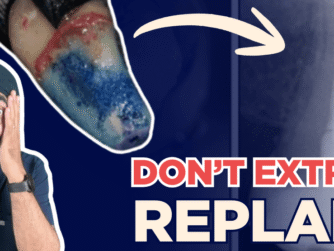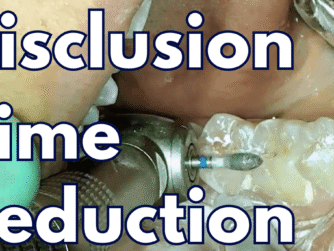Podcast: Play in new window | Download (Duration: 52:17 — 75.0MB)
Subscribe: RSS
What is the number 1 communication advice for Dentists?
Are you confident in discussing treatment fees with your patients?
Do you struggle with communicating your worth without feeling awkward?
How do you shift your mindset to charge what you’re truly worth without feeling guilty (a money mindset issue)?
In this enlightening conversation, Jaz opens up about his own struggles with money mindset and how he overcame them to confidently charge for his dental services.
Joined by dental student Naveed Bhatti, they explore the challenges of pricing treatments, offering empathetic solutions to patients, and using the power of visualization to boost confidence in fee discussions.
They also dive into the importance of being transparent with fees, managing discounts, and recognizing your true value as a dental professional. Whether you’re new to the field or have years of experience, these strategies will help you navigate the financial side of dentistry with ease and confidence.
Key Takeaways
- Communication is crucial in dentistry, often more than clinical skills.
- Active listening is essential; avoid interrupting patients.
- Nervous patients may talk excessively; guide the conversation gently.
- Patients may withhold information due to fear or anxiety.
- It’s important to make treatment recommendations based on patient needs.
- Asking open-ended questions can help gather more information.
- Experience builds confidence in patient interactions.
- Being authentic while adapting to patients is key.
- Patients can sense when a dentist is confident or insincere.
- Building rapport leads to better patient relationships. Kindness is essential in patient interactions.
- Patients often reflect the values of their dentists.
- Effective communication can bridge the gap between jargon and patient understanding.
- Long-term relationships with patients enhance trust and satisfaction.
- Discussing fees requires confidence and transparency.
- Visualization techniques can improve communication skills.
- Empathy is important, but it should not compromise business integrity.
Need to Read it? Check out the Full Episode Transcript below!
Highlights of this episode:
- 01:46 Introducing Naveed Bhatti and His Journey
- 02:53 The Importance of Communication in Dentistry (Do’s and Don’ts)
- 08:13 Handling Nervous and Quiet Patients
- 10:51 Dealing with Patients Who Don’t Tell the Whole Truth
- 14:35 Making Treatment Recommendations
- 17:56 Asking the Right Questions
- 21:36 Balancing Professionalism and Personal Connection
- 25:49 Handling Difficult Patients
- 31:38 Effective Communication with Patients
- 35:05 Discussing Treatment Fees with Confidence
- 40:25 The Power of Visualization in Dentistry
- 48:56 Concluding Thoughts and Future Plans
Support Nav’s YouTube channel, The StuDent
If you enjoyed this episode, don’t miss out on Think Comprehensive – Communication Gems with Zak Kara – PDP010!
This episode is eligible for 1 CE credit via the quiz on Protrusive Guidance.
This episode meets GDC Outcome B.
AGD Subject Code: 550 PRACTICE MANAGEMENT AND HUMAN RELATIONS
Aim:
To enhance dental professionals’ communication skills by exploring effective strategies for patient interaction, treatment planning, and fee discussions—ultimately building trust, improving patient outcomes, and boosting confidence in everyday clinical practice.
Dentists will be able to –
1. Recognize the importance of active listening and body language in patient communication.
2. Explain treatment options using patient-centered language and analogies that promote understanding and buy-in.
3. Discuss treatment fees with clarity and conviction, addressing money mindset barriers and building perceived value.







